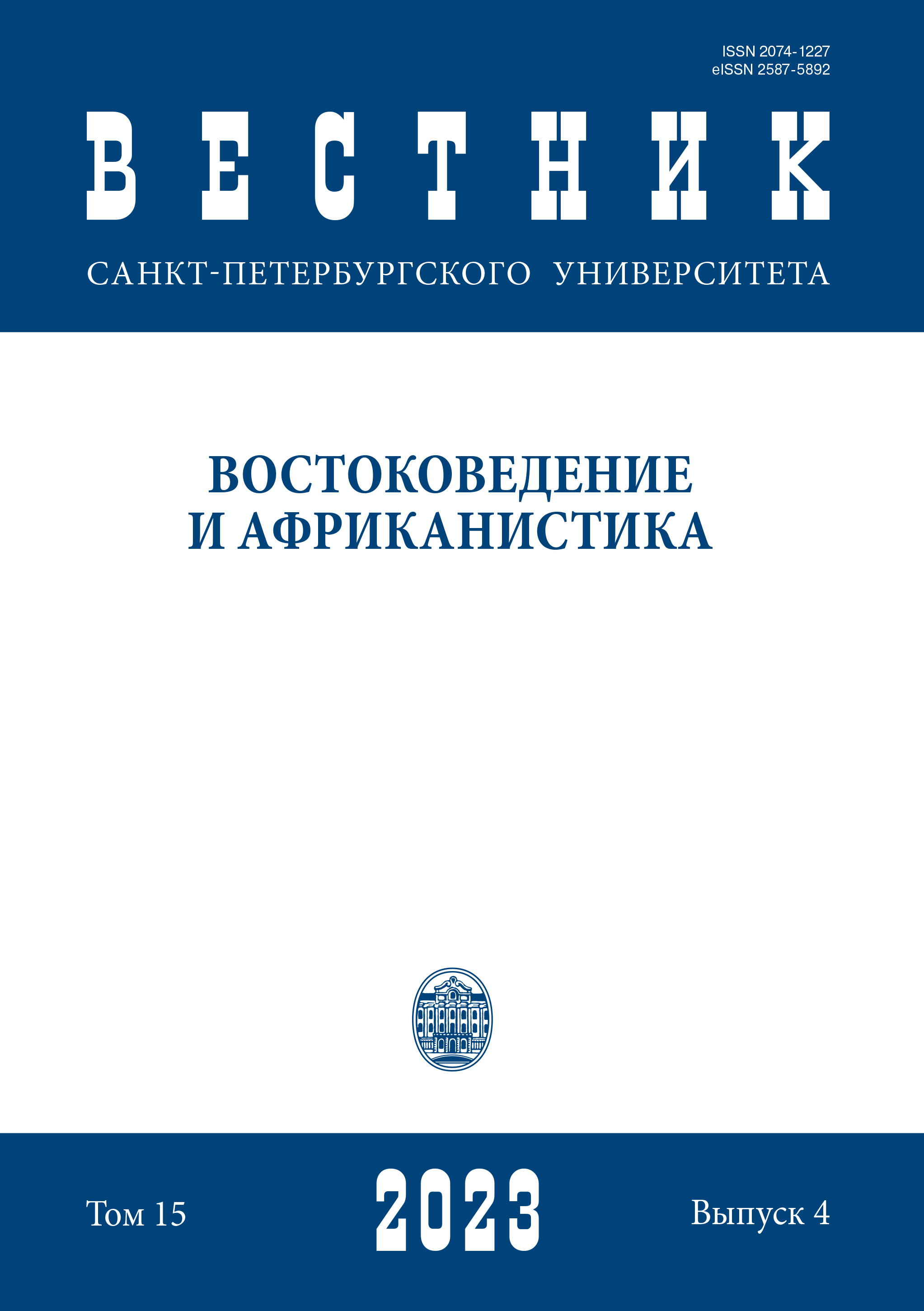Arab-Iranian Relations in Context of the Syrian Crisis
DOI:
https://doi.org/10.21638/spbu13.2023.412Abstract
Since the early 2000s, Islamic Republic of Iran (IRI) has been providing active policy in Middle East. The Syrian crisis challenged Iran’s positions in the region. In 2013–2014, the “imminent” collapse of Alawite power in Syria could affect Iran’s national security. In 2015 after the involvement of Russia’s Aerospace Forces (RAF) in Syria, Moscow-Tehran coordinated efforts played a decisive role in achieving al-Assad’s victory and reasserting regime’s influence across Syria. Tehran achieved all its primary goals in Syria and secured its long-term interests in the Middle East. The group of influential factors determined Iranian policy in Syria and other Middle Eastern countries. These factors derived form historical legacy, political background of Arab-Iranian relations, the presence of identically typical groups of population in the targeted countries, Tehran’s ability to change the regional power balance in its favor. The Syrian conflict presented an exclusive example from Iranian typical behavioral crisis model (e. g., low numbers of IRGC ground forces mostly in an advise-and-assist capacity). Meanwhile, Iranian policy in Syria affected Tehran’s relations with key regional, international players in the region. New developments in Iran Israeli crisis complicated situation in the region and created potential threats for lunching a new war on the Middle East. The main research’s goal shaped by study of the new developments in Iran’s Mideast politics and Iranian military operation in Syria regards Arab-Iran historical legacy. The above-mentioned questions shape the urgency of presented research paper that investigates most of advanced statements and proves forwarded conclusions. An appropriate theoretical framework for this study was provided by the constructivist approach combined with comparative methodology. The last decade has witnessed several studies about the Syrian crisis. Meanwhile the important details
of evolution of Iran’s politics in the Syrian conflict and Tehran’s military operations in other Mideast countries call for more comprehensive examining. In view of this the article defined by its novelty and based on sources in Arabic and Persian languages. An author tries to predict transformations in Iran’s Middle Eastern politics in view of further political developments in the region and Syria, as well.
Keywords:
Iran, Syrian crisis, Middle East, Shiites militias, Israel, Arabs
Downloads
References
Downloads
Published
How to Cite
Issue
Section
License
Articles of "Vestnik of Saint Petersburg University. Asian and African Studies" are open access distributed under the terms of the License Agreement with Saint Petersburg State University, which permits to the authors unrestricted distribution and self-archiving free of charge.





